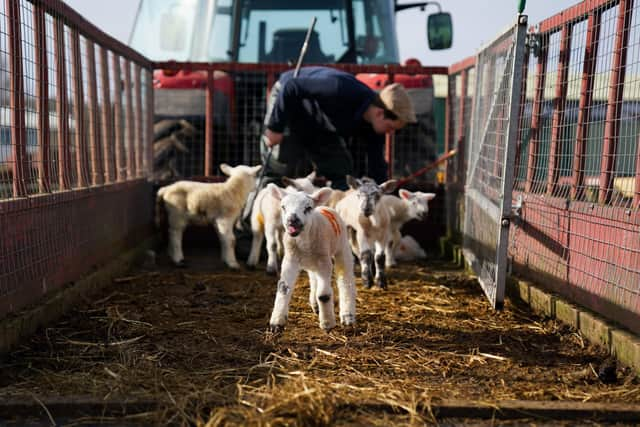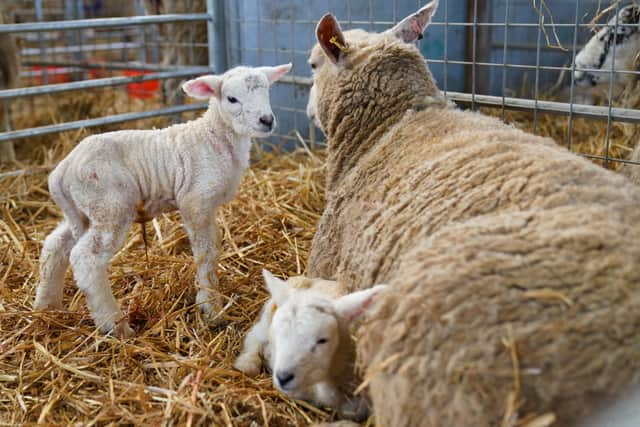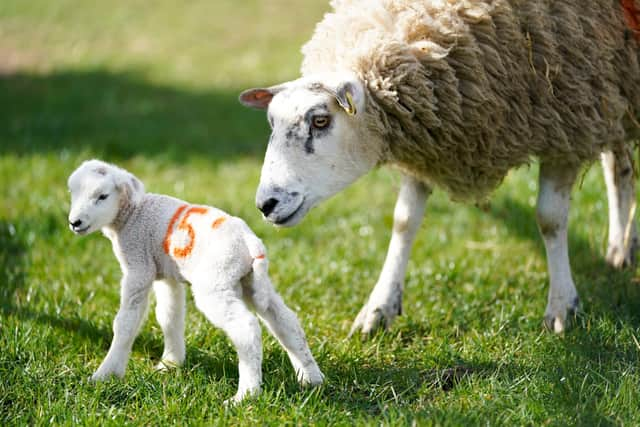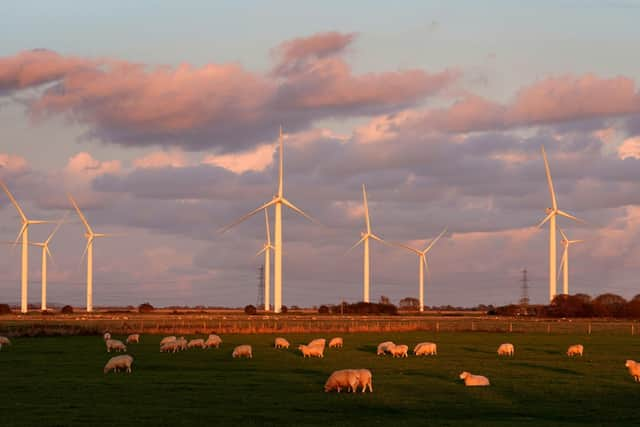This betrayal of farming by Ministers must stop if we’re to achieve greater food self-sufficiency after Ukraine crisis – Sarah Todd
Have we learnt nothing from the empty supermarket shelves of the coronavirus pandemic? It’s Stupid – with a deliberate capital S – for us to be relying so heavily on food imports.
Advertisement
Hide AdAdvertisement
Hide AdIt’s been jaw-dropping to learn since Putin’s invasion of the country known as the “breadbasket of Europe” how much farming relies on Russian fuel and fertiliser, as well as Ukrainian corn to feed its livestock.


Our agricultural community isn’t particularly fond of the French, it remembers with anger and disgust how the country’s farmers set fire to a truckload of British sheep in 1990, killing over 200 of them.
There has been other direct action against foreign food imports and farming policy that they view detrimental to their livelihoods.
But while we as a nation seem to view farming as a dirty word, France is doubling down on its goal for the EU (of which it’s the current holder of the presidency) to become more self-sufficient.
Advertisement
Hide AdAdvertisement
Hide AdIt is a French phrase, laissez-faire, that hugely-respected British farming industry stalwart Lord Donald Curry has used to describe our nation’s attitude towards food security.


He told the farming press that the conflict in Ukraine should “challenge our self-sufficiency in terms of food and fuel and what our priorities should be”.
Others to speak sense over recent days include the Tenant Farmers Association (TFA) chief executive George Dunn, who warns that the UK Government seems to “wait for the car crash to happen” before reacting, adding: “We cannot go on relying upon parts of the world which are at best unfriendly towards us and at worse hostile for our food and energy security.”
Nobody in Downing Street seems to be taking any notice of such common-sense.
Advertisement
Hide AdAdvertisement
Hide AdThe National Farmers’ Union has written to the Government to call for urgent action to help UK farmers produce enough food to keep supermarkets stocked and affordable, but yet all anybody important in a suit seems to talk about is ‘rewilding’.


Yes, our current agricultural policy is ploughing on with the notion of removing livestock from farmland and letting the weeds take over.
A wise old farmer told this correspondent how, during the 2001 foot-and-mouth crisis when his livestock was culled and his fields stood eerily silent, there was very quickly less – rather than more – wildlife. “There were no cow pats, then no insects and then we noticed no swallows …”
Talking of manure, our population’s disassociation with farming has become such that the traditional method of fertilising crops (spreading farmyard manure) is becoming increasingly impossible.
Advertisement
Hide AdAdvertisement
Hide AdIt’s a stereotype, but a true one, that rural villages are littered with people who have moved in and then complain about muck heaps and animal smells – interesting when looked at alongside our increasing reliance on chemical fertilisers.


Britain has become frightened – rather than proud like the French – of its agricultural roots.
Farmers are being told to refrain from clearing off trespassers and not be nasty to people who let their dogs off leads. Local authorities are pushing meat-free school dinners (farming’s new hero Jeremy Clarkson was this week protesting against his local council planning to ban meat and dairy from full council meetings and civic events).
And as for finding a pack of British bacon – which has the highest welfare standards in the world – in a supermarket …
Advertisement
Hide AdAdvertisement
Hide AdSince the pandemic, Britain’s countryside has been invaded by people from London and other urban areas, relocating or investing in second homes and holiday cottages.
People who understand the countryside are being marginalised; so many unable to remain in the area where they have grown up.
Anyway, that’s a hobby horse for another time.
But just as Britain needs to look at its oil and gas dependency, it needs to listen to the farmers.
Not the move-to-the-country brigade who have the time to fill in online surveys, but the real sons and daughters of the soil.
Advertisement
Hide AdAdvertisement
Hide AdIt’s their knowledge that’s needed to stop those empty shelves if, heaven forbid, the situation in Ukraine widens.
We need to think about feeding everybody, rich and poor, from our green and pleasant land. Good quality locally-produced food shouldn’t just be the preserve of the wealthy; purchased from upmarket farm shops and artisan producers.
It should be available – and affordable – for all.
Wildflowers are wonderful to see, but they aren’t much use to the hungry.
We have all marvelled at the bravery of the Ukrainian population, so it comes as no surprise to learn that they are also a hard-working nation.
Advertisement
Hide AdAdvertisement
Hide AdUkrainians account for 60 per cent of the UK’s seasonal farm workers, carrying out essential roles such as planting, picking, packing and grading of fresh produce.
In the light of the war, how will these gaps in the workforce be addressed?
Rather than waiting until fruit and vegetables are rotting unpicked in the fields, what are the powers-that-be doing to support farming to find a replacement workforce?
To finish with the words of French President Emmanuel Macron: “We can no longer depend on others to feed ourselves.”
Advertisement
Hide AdAdvertisement
Hide AdSarah Todd is a former editor of Yorkshire Life magazine. She is a farmer’s daughter, mother and journalist specialising in country life.
Support The Yorkshire Post and become a subscriber today. Your subscription will help us to continue to bring quality news to the people of Yorkshire. In return, you’ll see fewer ads on site, get free access to our app, receive exclusive members-only offers and access to all premium content and columns. Click here to subscribe.
Comment Guidelines
National World encourages reader discussion on our stories. User feedback, insights and back-and-forth exchanges add a rich layer of context to reporting. Please review our Community Guidelines before commenting.